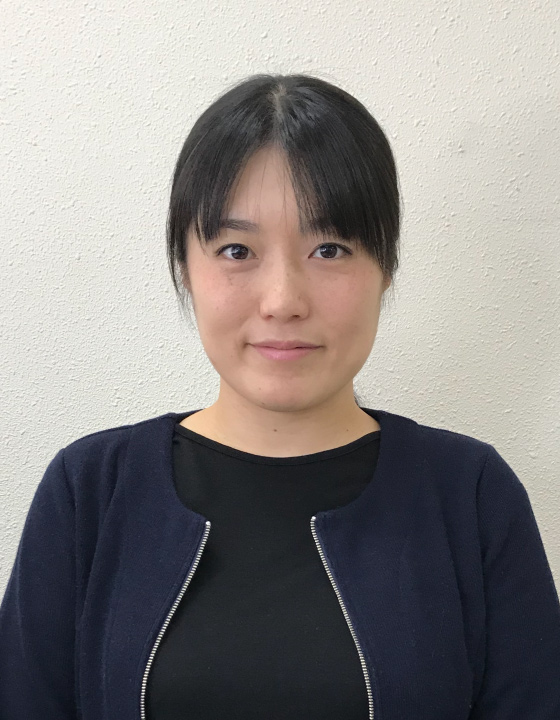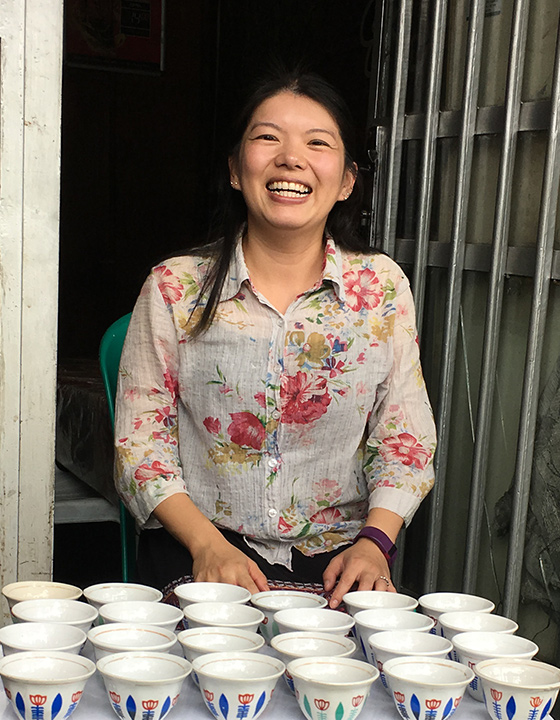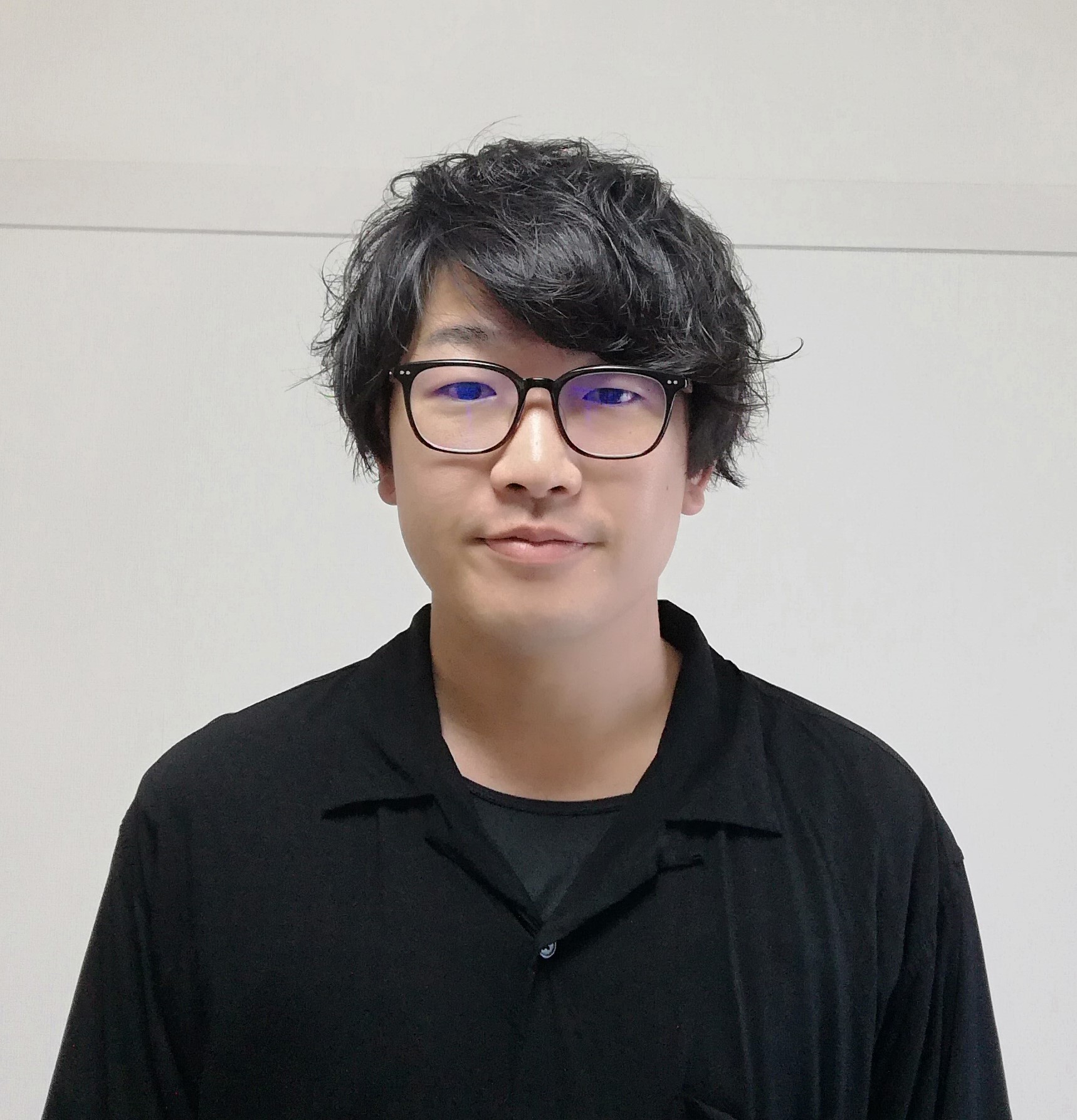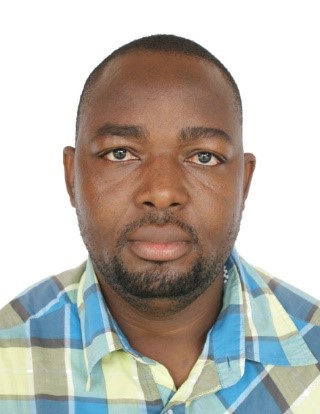Project Members
SKY[Skills and Knowledge for Youth] home Project Members
Members

Professor , Project Leader Shoko Yamada
My field of specialization is education and human resources in developing countries, particularly in Africa. I propose policy measures to improve the capacities of people for productive lives and wellbeing, through comprehensive analysis of skills and knowledge to be acquired in school and through work.
Main article / book
1.Yamada, Shoko, Christian Otchia, and Kyoko Taniguchi (2018). “Explaining differing perceptions of employees’ skill needs: the case of garment workers in Ethiopia,” International Journal of Training and Development. Vo. 21, Issue 4
2.Yamada, Shoko and Noriko Matsuda (2007). Vocational and Industrial Human Resource Development through TVET in Africa: Changing Assistance Environments and Human Resource Demands. pp. 102. Japan International Cooperation Agency and GRIPS.

Associate Professor, Graduate School of International Development, Nagoya University Christian Otchia
My research interests lie in the areas of political economy, labor economics, and economic development. My general approach is to develop and use economic models to study how industrial policy affects the relationship between economic growth and structural change in developing countries. Currently, my main research is on skills development, vocational training, and enterprise development.
Main article / book
1.Explaining differing perceptions of employees’ skill needs: the case of garment workers in Ethiopia. (With Shoko Yamada & Kyoko Taniguchi). International Journal of Training and Development, Forthcoming, 2018.
2."Gender-based Barriers and Opportunities to Financial Inclusion: New Evidence from Ghana." In Financial Inclusion for Poverty Alleviation: Issues and Case Studies for Sustainable Development, edited by Essam Yassin Mohammed and Zenebe Bashaw Uraguchi, 155-73. London & New York: Routledge, 2018.
3.Mining-based growth and productive transformation in the Democratic Republic of Congo: What can an African lion learn from an Asian tiger? Resources Policy 45: 227-238, 2015.
4.Agriculture Modernization, Technological Change and Pro-Poor Growth: Policy Options for the Democratic Republic of Congo, Journal of Economic Structures 3(8):1-43, 2014.

Assistant Professor, Graduate School of International Development, Nagoya University Yuki Shimazu
Sociology of Education and Africa Studies. She has researched on (1) Gender education in the training program for agricultural extension workers in Ethiopia, (2) Social/cultural factors affecting teachers’ implementation of curriculum, and (3) Industrial skills development in Africa.
Main article / book
1.Establishing Linkage between Formal TVET and the Local Labor Market in Ethiopia: The Strategy Implementation and Challenges of Formal TVET Institutions, Yuki Shimazu , Africa Educational Research Journal , 5, pp.134-148, 2014.

Hiroshima University Graduate School of Humanities and Social Sciences Associate Professor Kyoko Taniguchi
My major is educational development in developing countries. Mainly I have been focusing on doing school effectiveness research, measuring student achievement, and analyzing factors influencing grade repetition, dropout and transfer. Recently, I am also studying technical vocational education and training (TVET).
Main article / book
1.Yamada, S., Otchia, C., and Taniguchi, K. (2018). “Explaining differing perceptions of employees’ skill needs: the case of garment workers in Ethiopia,” International Journal of Training and Development. 21 (4).
2.Yamada, S., Taniguchi, K., Otchia, C. (2016). Policy Brief: Expected and Actual Skills of Young Workers in the Garment Industry of Ethiopia. Nagoya University. http://www.gsid.nagoya-u.ac.jp/syamada/index.html.

Designated Assistant Professor of Applied Social System Institute of ASIA, Nagoya University Natsuki Kondo
I’m interested in understanding the complexity and dynamics of African societies from structure and agency relationships and also interested in the methodological aspects. Area: Critical pedagogy, collective action and social movement theory, life story.
Main article / book
1. Natsuki KONDO. 2018. Theoretical and Analytical Framework to Capture Social Movements in Developing Countries from Actor’s Perspective: Approach to the Meaning of Action through Life Stories. Forum of International Development Studies, 48(4), 1-16.

Research Assistant Yujiro Yamazaki
I am currently belonging in Doctoral course in Nagoya University Graduate School of International Development.
My research interests are the process of skills development in informal metalwork especially in Kampala city, the capital city of Uganda.
Main article / book

Research Assistant Aya Mizutani
I am interested in poverty reduction at the micro level in developing countries from the econometrics perspective, and my research interests are what factors influence poverty reduction, such as education, family factors, individual characteristics and skills.
Main article / book

Ghana liaison of the Skills and Knowledge for Youth (SKY) project of the Nagoya University, Japan. Philip Aniah
I am currently a doctoral candidate at the Institute of Statistical, Social and Economic Research (ISSER), University of Ghana, Legon. I am also the Ghana Liaison of the SKY-project. My research interest since my graduate training has been on environmental governance and poverty reduction. My research interest is currently shifting to skills gap analysis of informal sector (Agriculture) workers in Africa. I co-founded a local organization (CALSEG-Ghana) that provides skills training for youth and women.
Main article / book
1. Aniah P. et al. (2019). Smallholder farmers' livelihood adaptation to climate variability and ecological changes in the savanna agro ecological zone of Ghana. Heliyon, 5(4), e01492.
2. Aniah P. et al. (2017). Environment, Development and Sustainability of Local Practices in the Sacred Groves and Shrines in Bongo District: A Bio-cultural study for Environmental Management in Ghana. Environment, Development and Sustainability. DOI 10.1007/s10668-015-9728-9.
3. Aniah P. et al. (2016). Learning from the past: The role of sacred groves and shrines in environmental management in the Bongo district of Ghana. Environmental Earth sciences. 75:1-9 DOI 10.1007/s12665-016-5706-2.
Advisors

Visiting Professor Hiroyuki Noguchi
My starting point as a researcher was “Test Theory”. In time, my interest became the theme around what needs to be done when applying the item response theory to a large-scale linguistic test. Currently I am researching about how to adapt CEFR (Common European Framework of Reference for Languages: Learning, teaching, assessment) in Japanese language settings and what supporting information is needed.
Main article / book
1.Shimada,M. & Noguchi,H.(2017). Introduction to Statistical Analysis for Japanese Language Education, Hitsuzi Shobo, Tokyo, Japan (in Japanese).
2.Noguchi,H. & Osumi,A. (2014). Introduction to Fundamental Test Theory and Application for Language Testing. Kenkyusha, Tokyo, Japan.
3.Noguchi,H.(2016).Test Standardization and Equating. JLTA Journal 2016 Supplementary : 20th Anniversary Special Issue,19,81-89.
4.Sakai,W.& Noguchi,H.(2015).Comparison of Tests of Mental Health for Student Counseling : Formation of a Common Measure. Japanese Journal of Educational Psychology,63,111-120. (in Japanese with English abstract).
5.Noguchi, H. & Kumagai, R. (2012). Estimation of Equating Coefficients Using Estimated Population Distribution in Common Examinees Designs. Japanese Journal for Research on Testing, 8, 9-18. (in Japanese with English abstract).
6.Noguchi, H. & Kumagai, R. (2011). A Correction for the Mean and Sigma Method in Common Examinees Designs. Japanese Journal for Research on Testing, 7, 15-22. (in Japanese with English abstract).

Professor, Graduate School of Asian and African Studies, Kyoto University Motoki Takahashi
I am interested in how African people’s economic activities, their way of lives and way of thinking interact with aid, and how they develop. My research is based on the knowledge of Development Economics, Political Economy, and African Area Studies.
Main article / book
Contemporary African Economies: A Changing Continent under Globalization African Development Bank (2016); “The Peculiarities of Japan’s ODA and the Implication for African Development”in André Asplund and Marie Söderberg eds. Japanese Development Cooperation: the Making of an Aid Architecture Pivoting to Asia Routledge. pp. 19-40 (2017); “National Integration, Political Violence and People’s Livelihoods: Conflicts and Coexistence in Rural Kenya” in Gebre Yintiso Deko, Itaru Ohta and Motoji Matsuda eds. African Virtues in the Pursuit of Conviviality: Exploring Local Solution in Light of Global Prescriptions. Langaa, pp.171-204 (2017) and other numerous books and articles

Chief Researcher, The Japan Textiles Importers Association. Team leader, JICA Pakistan Apparel Project. Advisor, PQC Corporation; Japanese textile inspection companies,Bangkok,Thailand. Yasuhiro Shoda
In ODA: Official Development Assistance and inter-state cooperation project for nurturing apparel industries in Asia and Africa countries, I have conducted production management and quality control seminars about 50 times and factory technical guidance at about 450 companies.
Former Professor, Bunka Gakuen University and Bunka Fashion College Tokyo, JAPAN
Main article / book
1.“The future of spreading ASEAN's sewing industry.” Journal of The Japan Research Association for Textile End-users, Vol.58,2017
2.“Quality Management in the Asian Apparel Industry(1),(2),(3),(4).” Journal of Bunka Women's University, Studies on fashion science & art design, No.37・38・39・40,2006,2007,2008,2009
3.“Apparel Production Design.” Bunka Fashion College 2005
4.“Apparel Quality Management.” Bunka Fashion College 2005

